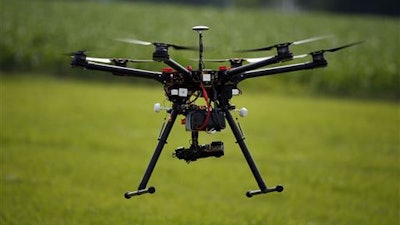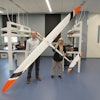
LAS VEGAS (AP) — Officials in Nevada say they see broad horizons for the unmanned aerial systems industry following the posting of federal aviation rules designed for small drone aircraft.
As one of six states picked in 2013 for Federal Aviation Administration-authorized testing — and the first in 2014 to be able to issue airworthiness certificates — the Silver State is emerging as a key hub for the drone industry, said Chris Walach, operations director for unmanned aviation at the Nevada Institute of Autonomous Systems.
"We have the education structure, we have the knowledge set, we have the skills, we have the industry base and the resources ... to become the thought leader in the global industry," Walach told the Las Vegas Review-Journal (http://bit.ly/29lyeaQ ).
In Congress, Democratic Rep. Dina Titus of Nevada noted this week that a House Transportation and Infrastructure Committee funding measure includes provisions to certify Nevada as an unmanned aviation systems testing state through 2020.
The FAA says the six drone testing states — the others are Alaska, New York, North Dakota, Texas and Virginia — are equals. But the Nevada Institute is the only FAA-designated airworthiness representative, able to independently certify unmanned aircraft.
Walach said the program, working with the governor's economic development office, focuses on boosting drone industry small businesses, research, development, manufacturing and jobs.
The FAA regulation approved June 21, known as Part 107, sets standards for routine use of drones weighing less than 55 pounds by real estate agents, farmers, filmmakers and countless other commercial operators.
The long-anticipated rules mean commercial operators can fly drones without special permission.
William O'Donnell, an executive at Las Vegas-based AviSight, an aerospace and remote sensing services company, told the Review-Journal the new rule knocks down a huge barrier for drone operators who currently need a pilot's license and a so-called 333 exemption from the FAA.
"And if people are getting their training here, they can open their businesses here and really push the state in becoming the best out there in terms of commercial drone activity," O'Donnell said.
Researchers at the Desert Research Institute and the University of Nevada, Las Vegas, College of Engineering are also studying applications for unmanned systems.
UNLV engineering professor Woosoon Yim said one program he's studying would allow plug-and-play interchangeable measuring devices for drones, including radiation, chemical and water vapor sensors.






















